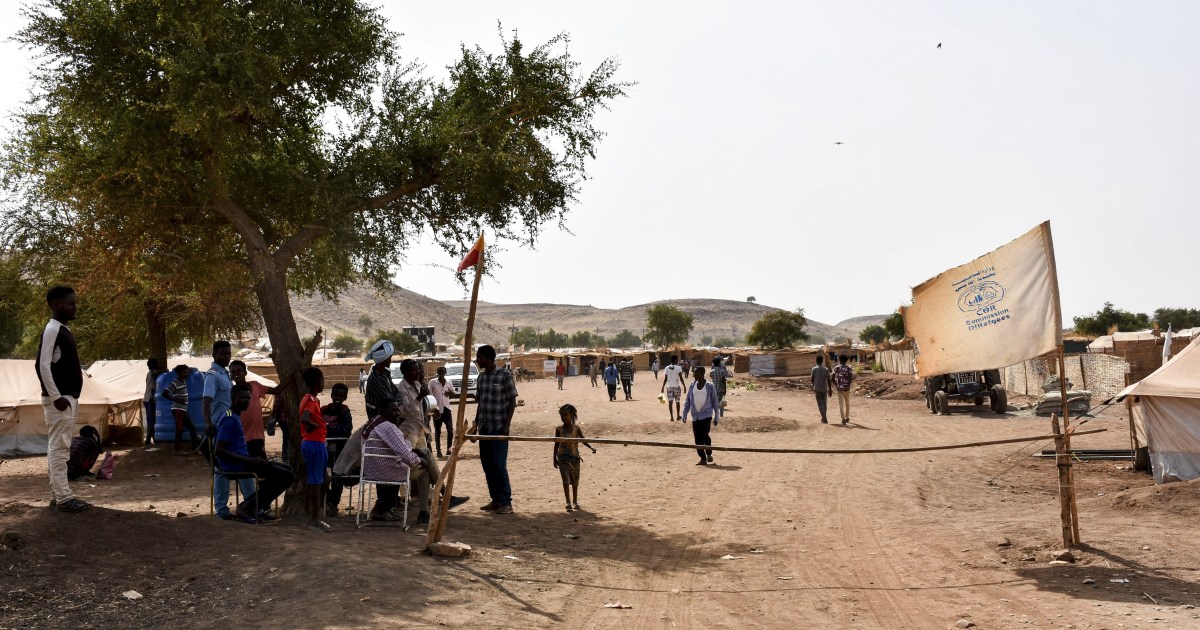Amnesty International announced today, Friday, that Eritrean soldiers fighting across the border in the Tigray region (northern Ethiopia) last year committed a "massacre" that claimed hundreds of lives and could amount to a crime against humanity.
In a new report, the organization collected testimonies of survivors of this massacre, and used satellite images to form a complete picture of this bloody event that took place last November in the historic town of Axum.
"The evidence is convincing and points to a horrific conclusion," said Amnesty International's Director for Eastern and Southern Africa, Debros Muchena. "Ethiopian and Eritrean forces committed numerous war crimes in their attack to gain control of Axum."
"This atrocity is one of the worst documented so far in this conflict," he added.
Battlefield
Tigray has turned into a battlefield since early November, when Ethiopian Prime Minister Abiy Ahmed launched a military operation against the Tigrayan People's Liberation Front, which he accused of attacking Federal Army camps.
At the end of the same month, Abiy Ahmed declared victory after his forces captured Mekele, the capital of the Tigray region, despite a pledge by the TPLF to continue fighting.
The Tigray has been cut off from the Internet and has been difficult to access since the beginning of the conflict.
This makes it difficult to confirm or deny allegations of violence.
However, the presence of Eritrean forces in Ethiopia is widely documented by human rights organizations and local residents, despite Addis Ababa and Asmara's exile.
Amnesty International said that it had spoken to 41 survivors who reported that, on 19 November, the Ethiopian and Eritrean military forces took control of Axum "in a large-scale attack, and indiscriminate firing and shelling killed and displaced civilians."
Witnesses said that, "in the following nine days, the Eritrean army engaged in widespread looting of civilian property and extrajudicial executions."
Eyewitnesses indicated that it was easy to identify the Eritrean soldiers through their vehicles, their language and the traditional tattoos on their faces, and they also explicitly declared their identity.
Residents told Amnesty International that many of the victims in Axum were unarmed and injured by bullets while fleeing, and the next day soldiers were allegedly fired at those who tried to remove the bodies.
Mass graves
The organization stated that it had collected the names of more than 240 victims, but was not able to independently verify the total number of those killed.
However, testimonies and evidence make it reasonable to estimate the number of dead in the hundreds.
Satellite imagery showed signs of mass graves, near two churches in the town.
"There should be a UN-led investigation into the grave violations in Axum, and the prosecution of those suspected of being responsible for war crimes or crimes against humanity," Muchina said.
"We reiterate our call on the Ethiopian government to allow humanitarian, human rights and media organizations to enter Tigray without hindrance," he added.
It is noteworthy that Eritrea fought a bloody border war with Ethiopia between 1998 and 2000 when the Tigray People's Liberation Front dominated the ruling coalition in Ethiopia.
Eritrean President Isaias Afwerki remains the archenemy of the Tigray People's Liberation Front, while an official rapprochement has taken place between Addis Ababa and Asmara, since Abiy Ahmed came to power in 2018.

